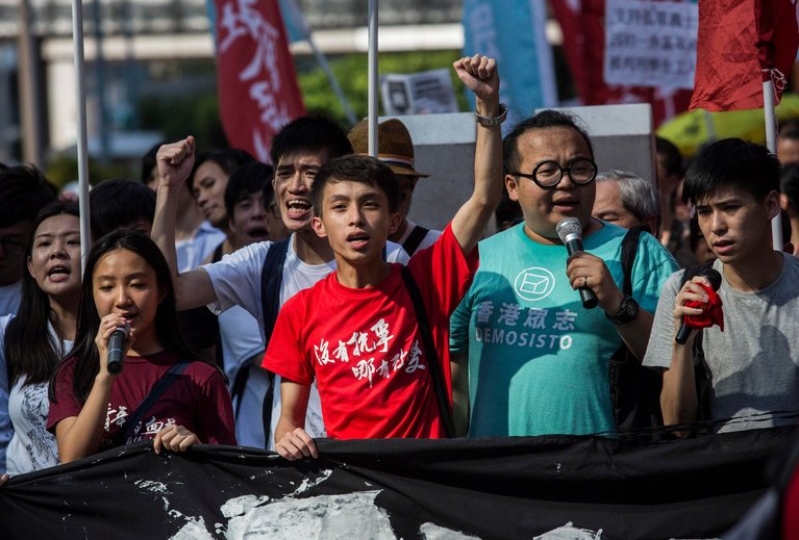
A Chinese pro-democracy activist has shared how he will never be able to fulfill his dream of becoming a pastor because he refuses to make "Jesus subservient to Xi Jinping" and urged Christians worldwide to pray for believers in his country as they "seek to find light amid the sea of darkness descending upon us."
In a recent article published in the New York Times, Derek Lam revealed that he first knew he wanted to enter the ministry when he was 16 years old after being raised in a Christian home.
"Those teachings about love and equality are what inspired me to study theology at Chinese University of Hong Kong," he writes. "They have also informed my democratic activism for the past six years - and it is for that reason that I am likely to be jailed next month and that I will be barred from ever becoming a pastor."
His story, Lam said, is just one example of how the freedoms granted under "One Country, Two Systems" are being dismantled by the Chinese Communist Party.
"Under Xi Jinping's leadership, Beijing is encroaching not only on Hong Kong's political freedoms but also on the most personal ones, such as religious beliefs, as part of a larger strategy to shut down any kind of organizing outside of the party," he said.
While Hong Kong's Basic Law allows for "myriad freedoms", including freedom of speech, freedom of religious belief and freedom to preach and to conduct and participate in religious activities in public, the reality is far different, Lam contends.
He points out that last week, his friends and fellow Christians Joshua Wong, Nathan Law and Alex Chow were imprisoned for peaceful protests they organized in 2014, and Hong Kong has seen an "unprecedented erosion of religious freedom... especially for Christians."
China is also guilty of a "perverse co-opting" of Christianity, Lam said. At a recent youth camp organized by Hong Kong's Christians, camp leaders told campers that "God would make China prosperous" and that Xi Jinping's infrastructure project known as "One Belt, One Road" was "the path that God had prepared."
"The organizers of the camp then had the audacity to claim that 'One Belt, One Road' would help spread the gospel," Lam said.
At another "Christian" camp, he witnessed young people being encouraged to proudly declare themselves as Chinese, waving the Chinese Communist Party's flag, singing the national anthem and praising the "motherland."
"The tension between the Chinese leadership in a country that is officially atheist and its Christians runs deep," Lam said, recalling how, since 2014, the government of Zhejiang Province has removed hundreds of crosses from atop churches and beaten and imprisoned those who oppose them.
"Of Hong Kong's six major religions, five are already firmly under the control of the Chinese Communist Party. Judging by recent events, the party is very close to completing its mission of bringing Christianity under its thumb," he warned.
"Although there is nothing I would love more than to become a pastor and preach the gospel in Hong Kong, I will never do so if it means making Jesus subservient to Xi Jinping. Instead, I will continue to fight for religious freedom in Hong Kong, even if I have to do it from behind bars."
Lam concluded his thoughts by asking Christians worldwide to "keep Hong Kong in your prayers as we seek to find light amid the sea of darkness descending upon us."
China is ranked 39th on Open Door USA's World Watch List of 50 countries where it is most difficult to be a Christian. Over the past year, President Xi Jinping has directed the party to "Sinicize" - or bring under Chinese tradition - the country's ethnic and religious minorities in efforts to counter religious "extremism".
Authorities believe Christianity, whose followers are said to rival in number the 85 million members of the Communist Party, "poses a major threat" to its long-term stability.
Tibetan Buddhists, Uighur Muslims, and Falun Gong practitioners were also said to be severely targeted for their faith; during Ramadan, the authorities in Xinjiang ordered all children under 16 to change names where police have determined they are "overly religious".






